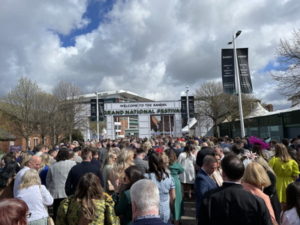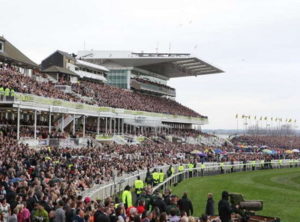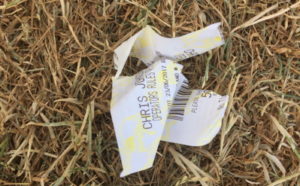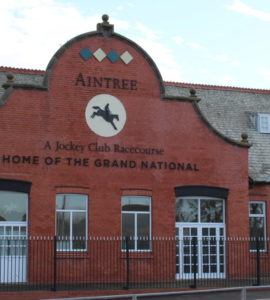Grand National 2022 in Numbers: Huge Attendance, Betting Numbers Up & TV Down
 The Grand National 2022 took place on Saturday April 9, and for the second year in a row, much of the focus was placed on the winning jockey, rather than the winning horse. That race was won by Sam Waley-Cohen, an amateur jockey, finished his riding career by securing the victory with a record that bests many of the professionals. Of course, much attention should also be given to the horse he rode in the event, Noble Yeats. He stood out as the first seven-year-old to be successful in a race since Bogskar way back in 1940.
The Grand National 2022 took place on Saturday April 9, and for the second year in a row, much of the focus was placed on the winning jockey, rather than the winning horse. That race was won by Sam Waley-Cohen, an amateur jockey, finished his riding career by securing the victory with a record that bests many of the professionals. Of course, much attention should also be given to the horse he rode in the event, Noble Yeats. He stood out as the first seven-year-old to be successful in a race since Bogskar way back in 1940.
But what about the figures and other data surrounding the Grand National event? How did everything play out in terms of the number of people attending, how much was wagered on the different races, how much was eaten and drunk, how many hotel rooms were utilised by guests and so on? Join us to take a closer look at the various statistics pertaining to the event and see exactly how everything came to be.
Huge Attendance But Calls To End It Also Increase
 The Grand National at Aintree was attended by more than 150,000 people. Merseyside Police were of the opinion that a higher number of attendants would be needed to deal with such a crowd, with thoughts turning to drunken racegoers. However, just four arrests were made over the three-day event, leading to the police force thanking the throngs of people for their good behaviour throughout.
The Grand National at Aintree was attended by more than 150,000 people. Merseyside Police were of the opinion that a higher number of attendants would be needed to deal with such a crowd, with thoughts turning to drunken racegoers. However, just four arrests were made over the three-day event, leading to the police force thanking the throngs of people for their good behaviour throughout.
Yet despite there being a large influx of guests visiting the Grand National event, calls have been made to either introduce tougher safety measures or end the race altogether, following the death of four horses.
On the Friday, Solwara One, being ridden by jockey Sam Twiston-Davies, suffered an injury and died after the 1:45pm race it was participating in. A suspected heart attack led to the death of Elle Est Belle on Saturday, while Éclair Surf and Discorama both also suffered fatal injuries in the main event of the Grand National.
In total, only 15 of the 40 horses racing the event actually finished it, managing to make it through the 30 fences that are involved in the course. The four deaths and less than half of the competitors finishing the Grand National has led to Chris Luffingham, director of external affairs for League Against Cruel Sports, stating that not enough is being done to protect the horses involved in races.
“We need new safety measures to prioritise horse welfare and to bring about an end to this sickening spectacle”,
he said. Luffingham called for an independent regulatory body to be introduced, which would focus purely on horse welfare, whilst also ending the use of the whip by jockeys.
Increase In Betting But Less TV Viewers
 Sports betting has always been a common activity for those people interested in the Grand National. And this is why it frequently sees high levels of bets placed on the races. This year, a total of 1.2 million bets were taken while the event was taking place. Yet despite this, the viewing figures for it dropped to its lowest figures since 2007.
Sports betting has always been a common activity for those people interested in the Grand National. And this is why it frequently sees high levels of bets placed on the races. This year, a total of 1.2 million bets were taken while the event was taking place. Yet despite this, the viewing figures for it dropped to its lowest figures since 2007.
This didn’t seem to particularly stop the sports bettors from engaging in what they like best, though. Sky Bet reported that it had taken 1.2 million bets on the most popular race of the year, and this is only down by around 1,000 in total from 2021’s figures. Of course, betting shops were not open at the time of last year’s event due to COVID-19 restrictions, and this was even with bookies calling for the Grand National to be delayed until restrictions were lifted. A slight decline in the amount of turnover from Grand National bets was also reported by Sky Bet.
Commenting on the bets taken, Michael Shinners who operates as the Head of Sports PR for Sky Bet, said that while stakes on the races were slightly less than in previous years, this was thought to be due to a number of reasons. The primary comment coming up was that people currently have less disposable income to utilise on sports betting.
“Our turnover was slightly down but maybe that’s the cost of living”, he said. “Maybe people were on holiday with it being half-term for a lot of the country, so they didn’t have a bet or much on. We were happy with the Grand National and how it’s gone”,
he finished off.
And thanks to the fact that the horse racing event clashed with two other big sporting events – the US Masters and the Premier League title game between Manchester City and Liverpool – people were potentially betting on other things. The Ladbrokes Coral PR Director, Simon Claire said,
“Saturday was the most important day imaginable for betting shops and those who work in them, as it represented a return to normality after the huge impact of the pandemic”.
He went on to comment on people flocking back to their local betting shop to place wagers on the Grand National, while online figures were also pleasing.
The figures released by Sky Bet were provided at around the same time that ITV Racing released its televiewing figures on Sunday. They showed that the peak audience figure was 7.5 million, down from 8.8 million in 2021 and 9.6 million in 2019 (the 2020 event did not take place due to the outbreak of the coronavirus pandemic). And this was despite the fact that Noble Yeats became the shock winner of the race.
UK charities did well out of the Grand National, though. The UK’s biggest bookmakers donated thousands of pounds to charity following Noble Yeats securing the victory. Prior to the race taking place, a selection of MPs, such as Alex-Davies Jones and Alok Sharma, were invited to place their own charity bets on the event. This was set up and organised by the Betting and Gaming Council (BGC). Those BGC members, including both William Hill and Paddy Power, ended up donating £250 to each nominated charity.
Punter Misses Out On Win Following Mistake By Partner
 In a bit of an unlucky story coinciding with the Grand National and sports betting, a punter ended up losing out on an £800 win after his partner failed to wager on the correct horse. The bettor posted a photo to his Facebook profile, showing the horses that he had wanted to back, and asked his partner to put the money on them while she was out. After Noble Yeats secured the victory, he ended up “jumping round like an idiot”, believing that he had picked up his own win in the process.
In a bit of an unlucky story coinciding with the Grand National and sports betting, a punter ended up losing out on an £800 win after his partner failed to wager on the correct horse. The bettor posted a photo to his Facebook profile, showing the horses that he had wanted to back, and asked his partner to put the money on them while she was out. After Noble Yeats secured the victory, he ended up “jumping round like an idiot”, believing that he had picked up his own win in the process.
Unfortunately, upon checking the betting slip that his partner had brought back home, he saw that there was quite the standout error on it. She hadn’t placed a £10 each way bet on Noble Yeats as he asked. Instead, she had placed the bet on Deise Aba, which had 66-1 odds like Noble Yeats before the race occurred. That horse was pulled up prior to the eighth fence, though.
While two out of the three punts he had selected had been correctly made by her in Cloth Cap and Delta Work, it was the omission of Noble Yeats that ended any kind of hope of him winning.
His fellow gamblers couldn’t believe his luck after trusting the placing of the bets to someone else. One exclaimed that it was grounds for divorce, while another told him that she should hand over the £800 to him herself. His partner’s excuse? That it was the betting machine’s fault, as she pressed the right one. An unfortunate outcome for him in the end, though! Maybe next time he should proceed with placing the bet himself.
Insights Into The Grand National
 While there is little information surrounding the amount of food and drink consumed at the Grand National this year or the number of hotel rooms occupied by visitors to Aintree, there is some further information that can be garnered regarding the race in general. Throughout the years, certain statistics have popped up, which serve as interesting pieces of knowledge in themselves. Let’s take a look at some intriguing statistics surrounding the Grand National in history.
While there is little information surrounding the amount of food and drink consumed at the Grand National this year or the number of hotel rooms occupied by visitors to Aintree, there is some further information that can be garnered regarding the race in general. Throughout the years, certain statistics have popped up, which serve as interesting pieces of knowledge in themselves. Let’s take a look at some intriguing statistics surrounding the Grand National in history.
The first five Grand National events that took place included a single jump, which existed as a stone wall. This was situated where today’s water jump now exists.
During the race, there is a fence entitled Becher’s Brook. This is jumped twice during the race, as the 6th and 22nd fence. A notorious and controversial obstacle due to its size and angle of the 6ft 9in drop, it has been the downfall of many a horse and rider. This includes Dark Ivy in 1987, as well as Seeandem and Brown Trix in 1989, with all three horses having to be put down afterwards. Changes were made to Becher’s Brook following such, and then again in 2011 when Ornais and Dooneys Gate also died after leaping the fence unsuccessfully. Yet the jump was named Becher’s Brook when top jockey Captain Martin Becher took shelter there after being unseated. Commenting on the outcome, he said, “Water tastes disgusting without the benefits of whisky”.
The Grand National also has a fence entitled The Chair, which serves as its highest jump today at 5ft 2in. It is also the broadest fence to make, and it obtained its name due to it being used alongside the seat that was utilised by the distance judge at one time.
It takes one month to complete the construction of the fences at Aintree, which are built from spruce. This is obtained from the Lake District, and it costs tens of thousands of pounds for all fences to be erected.
Grand National stats and figures suggest that a change in the course seemed to work quite well in 2014. No jockey was unseated from his horse in that year until the Canal Turn – named so for the Leeds & Liverpool Cancel, which passes alongside the racecourse at this particular point. It is jumped as the eighth and 24th fence in the event, and it is notable for its sharp left turn that runners are required to take once it has been successfully jumped over.
Red Rum remains as the most successful horse at the Grand National, winning the race three times in 1973, 1974 and 1977. Peter Simple is the event’s oldest winning horse, which was aged 15 when it was victorious in 1853, while the youngest were all aged 5 when winning in 1865 (Alcibiade), 1876 (Regal), 1877 (Austerlitz), 1880 (Empress) and 1909 (Lutteur III).
Golden Miller won the event in 1934 and it was the only horse to complete the Cheltenham Gold Cup-Grand National double. In 1991, Garrison Savannah came very close to equalling that achievement, but narrowly missed out on it.
George Stevens stands out as the most successful jockey in the history of the event, securing five wins, with his final triumph occurring in 1870. He passed away just three months after finishing in sixth position at the 1871 Grand National. Bruce Hobbs is the youngest jockey to have ever won the race at 17-years-old, riding to victory on Battleship in 1938. And Dick Saunders, meanwhile, is the oldest jockey to have picked up a win in the event when he rode Grittar to victory in 1982 at the age of 48.
Furthermore, there are a few riders who have won the event on their first ever outing. The most recent of these was Ryan Mania in 2013 on Auroras Encore, Liam Treadwell in 2009 on Mon Mome, Niall Madden in 2006 on Numbersixvalverde and Ruby Walsh in 2000 on Papillon.
Various international jockeys have also ridden their horses to varying levels of success in the Grand National, with William Watkinson securing the first success for Australia back in 1926. He was killed less than three weeks after winning the event. The very first jockey from outside of Britain and Ireland to ride in the Grand National and win it was Prince Karl Kinsky of Austro-Hungary in 1883. Tsuyoshi Tanaka was the first Japanese jockey to ride at the event in 1995, although he fell at the first fence while riding The Committee.
And just to finish these stats off, perhaps the unluckiest of riders is Richard Johnson. In 2012, he beat the record for the most rides in the Grand National without any win being secured, participating 19 times over without outdoing the runner-up spot he finished in at the 2002 event.



